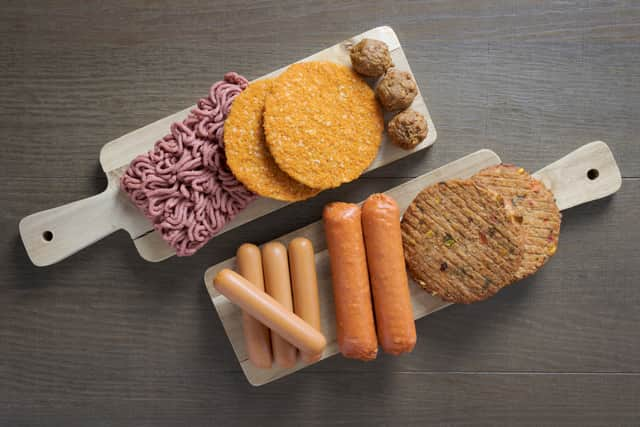What are ultra-processed foods? Term explained, UPF food items list - is there a link with cognitive decline
and live on Freeview channel 276
A new edition of the BBC's Panorama investigates a potential correlation between certain chemicals found in ultra-processed convenience foods and detrimental health conditions such as cancer, diabetes and strokes. Although UK regulators deem these chemicals safe, the program aims to shed light on developing evidence that could suggest the contrary.
The programme comes a year after a study has found a link between ultra-processed food and cognitive decline. But what exactly are ultra-processed foods and are they bad for you?


Here’s what you need to know.
Advertisement
Hide AdAdvertisement
Hide AdWhat are ultra-processed foods?
According to the NHS, processed food is any food that has been altered in some way during preparation.
Food processing can be as basic as:
- freezing
- canning
- baking
- drying
Not all processed foods are unhealthy, but some processed foods may contain high levels of salt, sugar and fat.
Examples of common processed foods include:
- breakfast cereals
- cheese
- tinned vegetables
- bread
- savoury snacks, such as crisps, sausage rolls, pies and pasties
- meat products, such as bacon, sausage, ham, salami and paté
- microwave meals or ready meals
- cakes and biscuits
- drinks, such as milk or soft drinks
Not all processed food is a bad choice as some foods need processing to make them safe, such as milk, which needs to be pasteurised to remove harmful bacteria.
Other foods also need processing to make them suitable for use, such as pressing seeds to make oil.
Advertisement
Hide AdAdvertisement
Hide AdHowever, ultra-processed foods often contain added preservatives, sweeteners or colour enhancers.
Examples of ultra-processed food include packed bread and snacks, sweets and desserts, fizzy drinks, ready meals and processed meats, such as sausages.
What did the study find?
The study tracked 10,000 Brazilians over a decade. Ultra-processed foods are defined by the study as "industrial formulations of food substances (oils, fats, sugars, starch, and protein isolates) that contain little or no whole foods and typically include flavourings, colourings, emulsifiers, and other cosmetic additives."
According to the study, up to 25 to 30% of total calorie intake in Brazil is from ultra-processed foods.
Advertisement
Hide AdAdvertisement
Hide AdCNN reports that the new study found that eating those foods may contribute to overall cognitive decline, including in parts of the brain that control executive function, which means the ability to process information and make decisions.
The study found that both men and women who ate the most ultra-processed foods had a global cognitive decline rate 28% faster than those who did not eat those foods.
They also had a 25% faster decline rate of their executive functions than their peers who did not eat ultra-processed foods.
Rudy Tanzi, professor of neurology at Harvard Medical School and director of the genetics and ageing research unit at Massachusetts General Hospital in Boston, told CNN: “While in need of further study and replication, the new results are quite compelling and emphasise the critical role for proper nutrition in preserving and promoting brain health and reducing risk for brain diseases as we get older.”
Comment Guidelines
National World encourages reader discussion on our stories. User feedback, insights and back-and-forth exchanges add a rich layer of context to reporting. Please review our Community Guidelines before commenting.
